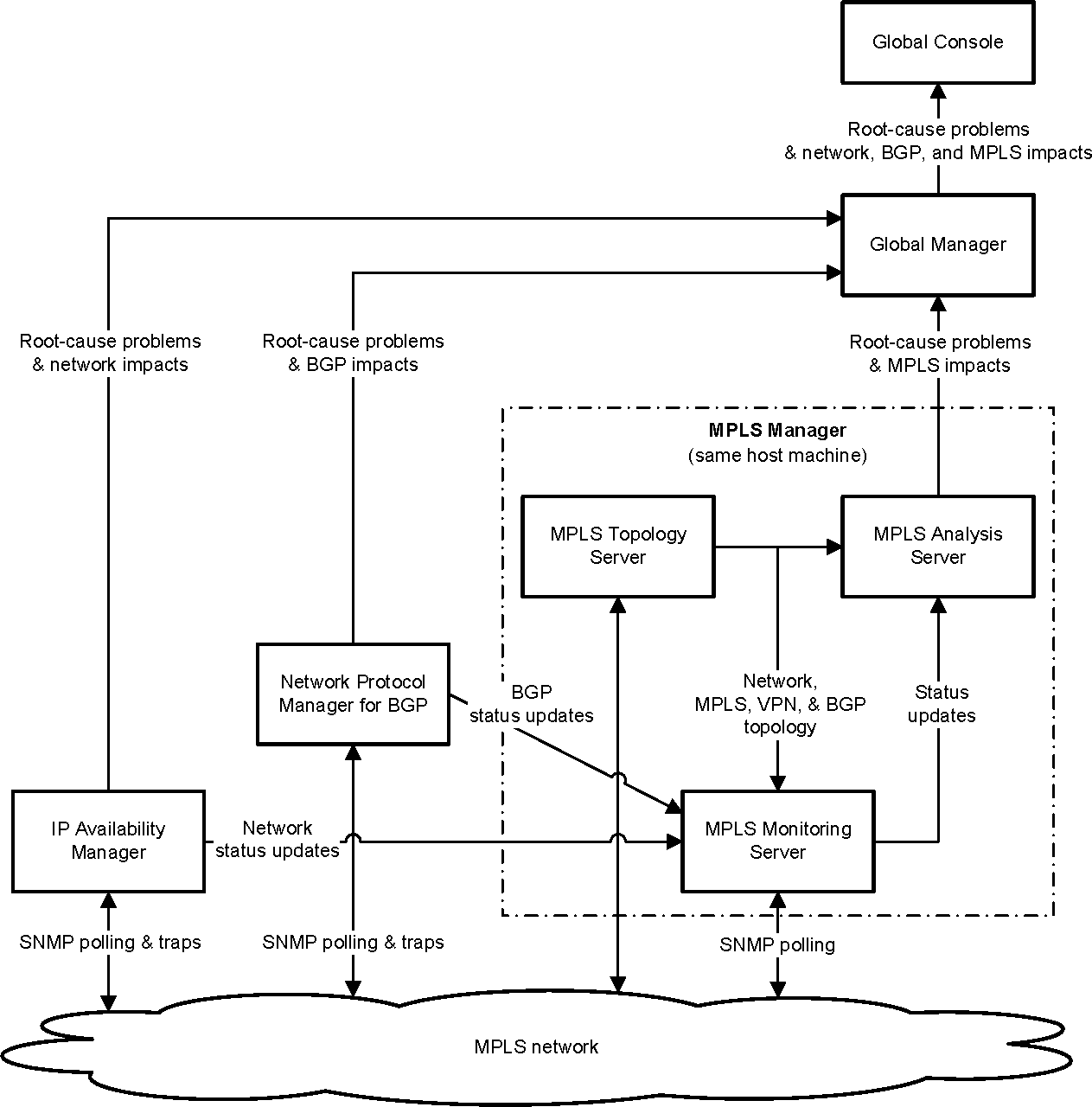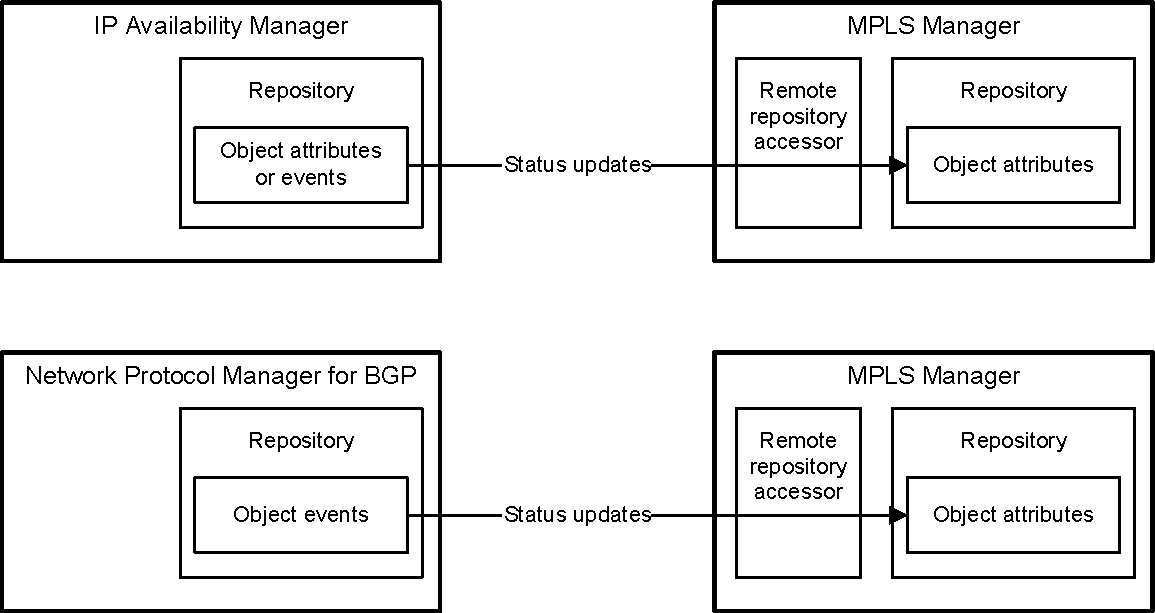MPLS failures, or apparent failures, that are detected by MPLS Manager cannot be analyzed in isolation. Rather, those failures must be correlated with the physical-transport failures that are detected by IP Availability Manager, or the BGP failures that are detected by Network Protocol Manager for BGP, in order to determine the root-cause problem that is underlying all observed symptoms. MPLS Manager analyzes MPLS, physical-transport, and BGP failures to determine whether an MPLS failure is indeed a root-cause problem, or simply a symptom (impact) of an underlying physical-transport or BGP root-cause problem.
When MPLS Manager detects an MPLS alarm, it checks for any physical-transport or BGP problem that might be causing the alarm. If it does not find such a problem, MPLS Manager focuses its analysis on just the MPLS domain and performs the root-cause analysis described in Chapter 3, “MPLS, VPN, and BGP Objects and their Failures.”
If it does find such a problem, MPLS Manager diagnoses the MPLS alarm as an impact and exports the underlying physical-transport or BGP problem and the MPLS impact to the Global Manager. The Global Manager responds by adding the MPLS impact as an impact of the underlying physical-transport or BGP root-cause problem.
MPLS and global impact analysis shows the flow of information between the components in an MPLS Manager deployment to achieve MPLS and global impact analysis.

Status updates received from IP Availability Manager identifies the IP Availability Manager statuses to which MPLS Manager subscribes.
| Object |
Problem-type status |
Event-type status |
|---|---|---|
| UnitaryComputerSystem Router 1 Switch and so on |
Unresponsive (event) 2 |
|
| Card |
Down (problem) |
|
| NetworkAdapter Interface 1 Port |
Disabled (problem) AdminStatus (attribute)(to detect Down problem) IsFlapping (attribute)(to detect Unstable problem) |
|
| NetworkConnection Cable 1 TrunkCable |
DownOrFlapping (event) 2 |
|
| 1**Indentation indicates class hierarchy. 2**Declared a problem-type status by MPLS Manager. |
||
Status updates received from Network Protocol Manager for BGP identifies the Network Protocol Manager for BGP statuses to which MPLS Manager subscribes.
| Object |
Problem-type status |
Event-type status |
|---|---|---|
| BGPService |
Down |
|
| BGPProtocolEndpoint |
Disabled |
|
| RemoteASMismatch |
||
| RemoteSystemNotRunning |
||
| RemoteSpeakerNotConfigured |
||
| IBGPPeerMissing |
||
| BGPSession |
Down |
MPLS Manager imports status information from IP Availability Manager and Network Protocol Manager for BGP through a remote repository (proxy) accessor, as shown in Remote repository accessor operation for MPLS Manager.

Adding IP Availability Manager as a source to MPLS Manager causes MPLS Manager to import topology and status from the IP Availability Manager. The VMware Smart Assurance MPLS Manager Configuration Guide and the VMware Smart Assurance MPLS Manager Discovery Guide Supplement provide instructions for completing this task.
Adding Network Protocol Manager for BGP as a source to MPLS Manager causes MPLS Manager to import status from the Network Protocol Manager for BGP. The VMware Smart Assurance MPLS Manager Configuration Guide provides instructions for completing this task.